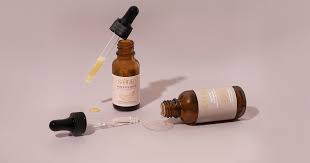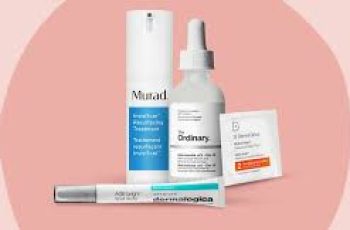
Which Serum Do I Need? A Complete Guide to Choosing the Right Serum for Your Skin
When it comes to skincare, serums have earned a well-deserved reputation for being powerful, effective, and versatile. They’re known for being packed with active ingredients that can target various skin concerns.
However, choosing the right serum can be a daunting task because there are so many different options available.
If you’ve ever found yourself wondering, “Which serum should I use?” or “How do I choose the right serum?”, you’re in the right place.
In this guide, we will break down everything you need to know to make an informed decision and help you pick the serum that best suits your skin’s unique needs.
What is a Serum?
A serum is a lightweight, highly concentrated formula packed with active ingredients.
These actives penetrate deeply into the skin’s layers to deliver results that other products like cleansers and moisturizers can’t achieve on their own.
While moisturizers hydrate the skin’s surface, serums are designed to target specific skin issues, like wrinkles, acne, hyperpigmentation, and more, by delivering ingredients at a deeper level.
They are often formulated for particular skin concerns, which makes them a great addition to your skincare routine.
Types of Serums
Serums can be classified into six main categories, each designed to address specific skin concerns.
Whether you’re looking to reduce fine lines or achieve a more radiant complexion, there’s a serum that can help you meet your goals.
1. Anti-Aging Serums
One of the most popular types of serums is the anti-aging serum, which is designed to target visible signs of aging, such as fine lines, wrinkles, and sagging skin.
These serums typically work by boosting collagen production, improving cell turnover, and firming the skin.
Retinol, a form of vitamin A, is a key ingredient in many anti-aging serums because it promotes faster skin regeneration, leaving you with firmer and more youthful-looking skin.
You’ll also find other ingredients like peptides, growth factors, and antioxidants that help repair and renew the skin.
2. Skin-Brightening Serums
If you have concerns about dark spots, uneven skin tone, or hyperpigmentation, skin-brightening serums are designed to address those issues.
These serums often contain ingredients like vitamin C, vitamin E, and fruit acids such as glycolic and lactic acid to lighten skin and reduce the appearance of discoloration.
They work by inhibiting melanin production and promoting a more even complexion. Regular use of these serums will help your skin look brighter, smoother, and more radiant.
3. Acne Serums
Acne is a common skin concern, and acne serums can help address it by unclogging pores, regulating oil production, and reducing inflammation.
These serums typically contain salicylic acid, benzoyl peroxide, and tea tree oil, all of which are known for their acne-fighting properties.
Salicylic acid exfoliates the skin and prevents clogged pores, while benzoyl peroxide works to kill acne-causing bacteria.
Acne serums can also help calm the skin and reduce redness and irritation, leaving you with clearer skin over time.
4. Hydrating Serums
Whether you have dry skin or not, every skin type benefits from hydration.
Hydrating serums are formulated with ingredients like hyaluronic acid, glycerin, and aloe vera to lock in moisture and keep the skin plump and dewy.
These ingredients help to draw moisture from the air into the skin, ensuring that your skin remains hydrated throughout the day.
Hyaluronic acid, in particular, is highly effective because it holds up to 1000 times its weight in water, providing long-lasting hydration and making your skin look firmer and more youthful.
5. Exfoliating Serums
Exfoliating serums are designed to gently remove dead skin cells and promote skin renewal.
They typically contain AHAs (alpha hydroxy acids) and BHAs (beta hydroxy acids), such as glycolic acid and salicylic acid, that slough off dead skin, making room for fresh skin cells.
These serums help improve the texture of your skin and can make your complexion look brighter and smoother.
Exfoliating serums are great for improving skin turnover, ensuring that your skin looks radiant and healthy.
6. All-Around Improvement Serums
These are the serums that offer general care for the skin. They tend to focus on hydration, repair, and balance.
Niacinamide and peptides are some common ingredients in these all-around improvement serums.
They are great for individuals who want to restore their skin’s health and get a more youthful appearance without targeting a specific concern like wrinkles or acne.
These serums create a refreshed complexion, reduce redness, and improve overall skin health.
How to Choose the Right Serum for Your Skin
Choosing the right serum largely depends on your skin type and the specific issues you want to target. Below are some guidelines on which ingredients work best for different skin types:
1. For Dry Skin
If you have dry skin, you’ll want to look for serums that focus on hydration and repair. Look for ingredients such as:
Hyaluronic acid – Draws moisture into the skin and keeps it plump.
Lactic acid – An AHA that gently exfoliates and hydrates.
Antioxidants – To combat oxidative stress and nourish the skin.
Aloe vera – Soothes and hydrates dry, irritated skin.
2. For Combination Skin
If your skin is a mix of oily and dry, you’ll need a serum that addresses both oil production and hydration. Consider serums with:
Vitamin C – Brightens the skin and fights free radicals.
Glycolic acid – Exfoliates dead skin while balancing oil production.
Hyaluronic acid – Keeps the skin hydrated without being too heavy.
Retinol – Helps with cell turnover and skin texture.
3. For Oily Skin
Oily skin benefits from products that can help regulate sebum production and keep pores clear. Try serums containing:
Salicylic acid – Helps with pore clearing and acne prevention.
Tea tree oil – Known for its antibacterial properties that combat acne.
Retinol – Helps prevent clogged pores and regulates oil production.
Antioxidants – Protects the skin from environmental damage.
Which Serum is Best for Daily Use?
While this can vary depending on your skin type and concerns, two of the most commonly recommended ingredients for daily use are vitamin C and hyaluronic acid.
Vitamin C: This potent antioxidant helps brighten your complexion, fights sun damage, and promotes even skin tone.
It’s especially effective in the morning as it provides an added layer of protection against environmental aggressors like UV rays and pollution.
Hyaluronic Acid: Hyaluronic acid is great for all skin types because it hydrates the skin and gives it a plump, healthy glow.
It’s lightweight and easily absorbed, making it a perfect base for your daily skincare routine.
These serums can be used daily, but it’s important to remember that vitamin C can make your skin more sensitive to sunlight, so you should always apply sunscreen after using it in the morning.
Do I Need a Serum and a Moisturizer?
This is a common question, and the answer can depend on your skin’s needs.
Some experts argue that serums are powerful enough to deliver the active ingredients your skin requires, and you may not need a moisturizer afterward.
However, many people find that using both a serum and a moisturizer works best.
The serum delivers concentrated actives deep into the skin, while the moisturizer locks in hydration and acts as a protective barrier.
In my opinion, using both a serum and a moisturizer creates the most balanced and effective routine.
The moisturizer helps seal in the benefits of the serum while offering additional hydration and protection.
When Should I Start Using a Serum?
The earlier you start using a serum, the better! Starting in your twenties can help with prevention, particularly for signs of aging or skin concerns like acne.
However, it’s never too late to introduce serums into your skincare routine.
Whether you’re aiming to prevent early signs of aging, treat hyperpigmentation, or address dryness, serums can make a noticeable difference at any stage.
Conclusion
Choosing the right serum depends on your skin’s needs and concerns, but with the right information, you can find the perfect match for your routine.
Whether you need something to target fine lines, brighten dark spots, or add hydration, serums are a great addition to any skincare regimen.
Remember, you can layer serums for targeted treatment, and the right serum, paired with a good moisturizer, can help you achieve glowing, healthy skin.
I hope this guide has given you a clearer idea of which serum you need to incorporate into your routine.
If you have any questions or need more advice, don’t hesitate to reach out to us on Instagram. We’re always happy to help with more skincare tips and product recommendations!


